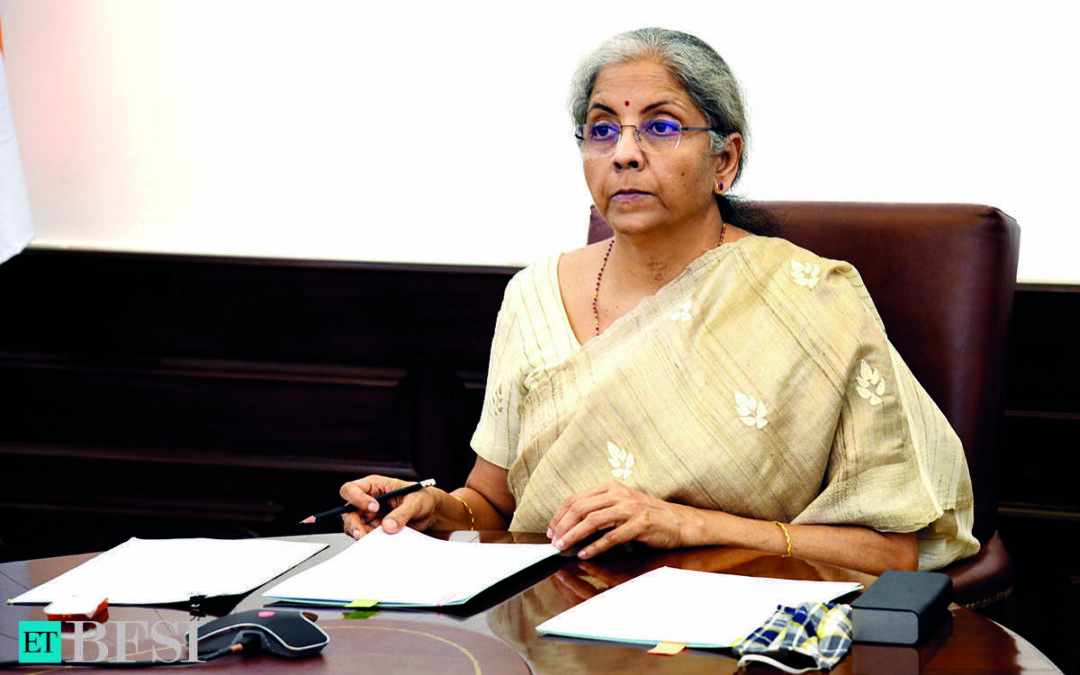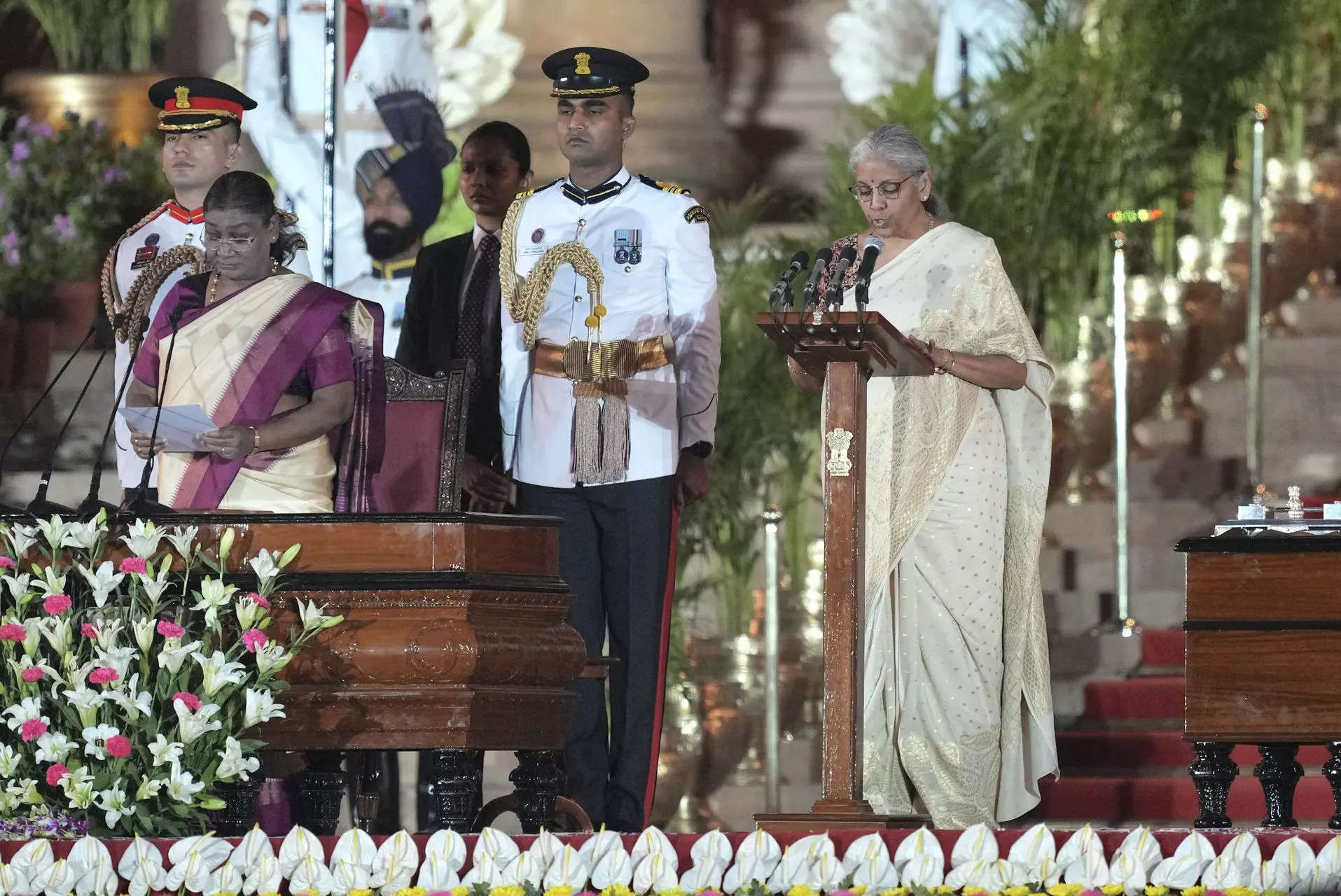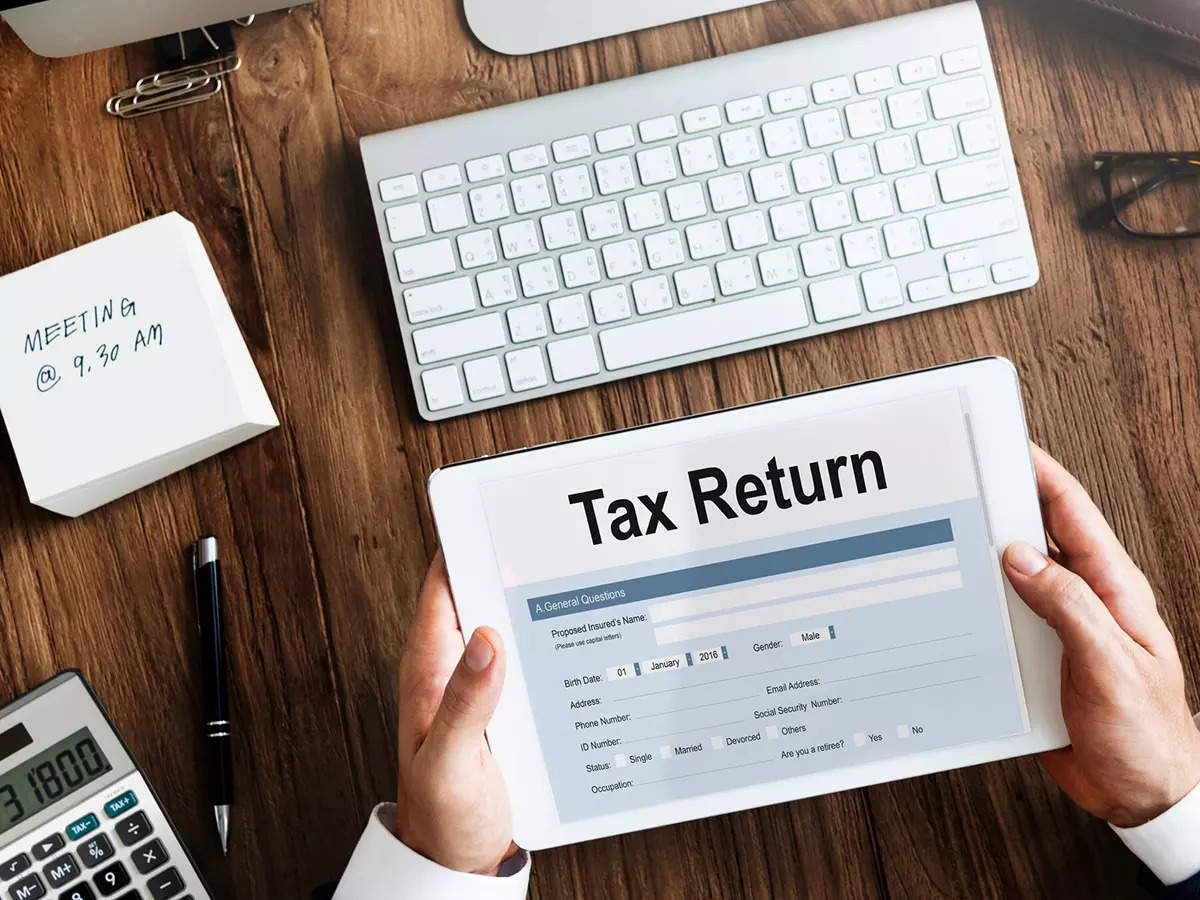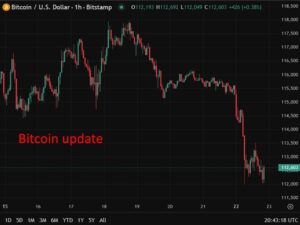The Indian Economy has witnessed tremendous transformation under the leadership of Finance Minister Nirmala Sitharaman. Being the first full-time woman finance minister of the country, Sitharaman has brought about many reforms and changes, introduced meaningful government policies, held meetings with regulatory and industry bodies, public sector banks and more regularly and have addressed pertinent concerns relating to the economy.
From serving as the defence minister in the 2014 BJP Government to taking over as the Finance Minister in 2019, Nirmala Sitharaman is the first full-time woman finance minister of India and a valued member of the Central Government cabinet. Further, Sitharaman retains the finance portfolio in the Modi3.0 government and is set to serve her second term as the country’s Finance Minister.
ALSO READ: Modi 3.0: Nirmala Sitharaman to continue as India’s Finance Minister
ETBFSI has jotted down and highlighted the top 10 landmark decisions taken by Finance Minister Nirmala Sitharaman that has transformed the Indian Economy.
1) Amalgamation of Public Sector Banks
The mega consolidation, which took effect from April 1, 2020, saw 10 public sector banks consolidate into four — Oriental Bank of Commerce and United Bank of India merged with Punjab National Bank; Syndicate Bank merged with Canara Bank; Andhra Bank and Corporation Bank merged with UBI; and Allahabad Bank with Indian Bank.
The mergers were aimed at creating global sized banks in India. This move not only reduced the number of public sector banks, but also added strength to the four freshly merged banks. The decision by the finance minister was passed and approved by the Union Cabinet.
2) Central Goods and Services Tax Amendment Bill
Finance Minister, Nirmala Sitharaman introduced CGST (Second Amendment) Bill, 2023 in Lok Sabha in December, 2023.
The Central Goods and Services Tax (Second Amendment) Bill, 2023, proposed to cap the age for president and members of the GST appellate tribunals (GSTAT) at 70 years and 67 years, respectively, higher than 67 years and 65 years specified earlier and allowed advocates with 10 years of experience to be eligible to become a member.
According to the provisions of the Bill, the Central Goods and Services Tax Act, 2017 got with the Tribunal Reforms Act, 2021 to initiate the administrative process for operationalisation of the Goods and Services Tax Appellate Tribunals.
The GST Council chaired by FM Sitharaman and all the finance ministers of all states and union territories, in October had approved the change in the age criteria.
3) Simplifying tax slabs
To provide relief to taxpayers and simplify the taxation regime, income tax slabs were changed during Union Budget 2023.
Under the new tax regime, the basic exemption limit was hiked to Rs 3 lakh from Rs 2.5 lakh, while the rebate under Section 87A of the Income Tax Act, 1961, was increased from Rs 5 lakh to Rs 7 lakh.
As a result, individuals who have income up to Rs 7 lakh per year will get a full tax rebate under the new tax regime, absolving them from paying any income tax.
The changes would be beneficial for those who are unable to make tax-saving investments and expenditures in the old tax regime. This category of people often ended up paying higher taxes before the new tax regime became available.
From April 1, 2023, the new tax regime became the default tax regime. This meant that if an individual does not specify the tax regime for TDS from salary or while filing income tax return, then income tax liability will be calculated on the basis of the new tax regime income tax slabs.
4) Credit to MSMEs
The Covid-19 pandemic presented economic concerns and as a component of the rescue package, the Emergency Credit Line Guarantee Scheme (ECLGS) was introduced to help MSMEs in need of cash.
The Union Cabinet had announced the approval of additional funding of up to Rs 3 lakh crore to MSMEs and interested MUDRA loan borrowers through the introduction of Emergency Credit Line Guarantee Scheme (ECLGS).
By offering a complete guarantee coverage, the scheme encouraged banks and non-banking financial institutions (NBFCs) to lend to MSMEs. The programme has provided guarantees of Rs 3.61 lakh crore to 1.19 crore borrowers as of January 2023.
This prompt assistance has helped MSMEs maintain their operations, keep their staff, and successfully navigate the difficult commercial market.
5) Cryptocurrency Taxation
From 1st April 2022, some changes in the income tax rules announced by Finance Minister Nirmala Sitharaman while presenting Union Budget 2022 got implemented, one of them being tax on cryptocurrency and other digital assets.
Nirmala Sitharaman in the Union Budget 2022 had announced that “any income from transfer of any virtual digital asset shall be taxed at the rate of 30 per cent.”
After the 30 percent tax rate, cryptocurrency investors will also face a 1 percent tax deducted at source (TDS) on their assets.
The gain on the sale of cryptocurrency is to be taxed at a 30 per cent tax rate. This taxation certainly impacts post-tax returns of cryptocurrency transactions. Only deduction from sale consideration can be the ‘cost of acquisition of cryptocurrency’.
6) Fiscal prudence
Union Finance Minister Nirmala Sitharaman has consistently underscored fiscal prudence as a top priority, with the aim of reducing the fiscal deficit to 4.5 per cent by FY26.
She has earlier stated that the Centre gives priority to fiscal prudence without compromising on resources for welfare schemes.
In the 2024 Interim Budget presentation on February 1, Union Finance Minister Nirmala Sitharaman had outlined the Revised Estimates for 2023-24 and the Budget Estimates for 2024-25.
The Centre’s fiscal projections in the Interim Budget show their seriousness about fiscal consolidation. While both the revised estimates (RE) and Budget estimate (BE) look achievable, however, it is to be noted that one will have to wait for the full Budget after the 2024 general election to see what the new government has to say.
7) Focus on Flagship schemes
Finance Minister Nirmala Sitharaman has been vocal about garnering support and promoting flagship schemes and has earlier said that Regional Rural Banks (RRBs) of India should continue their focus on flagship schemes of the Central government such as PMJJBY, PMSBY, PM SVANidhi, Atal Pension Yojana, PM Jan Dhan Yojana, PM Mudra Yojana, KCC, KCC Animal Husbandry & Fisheries, and aim for their saturation.
8) Mahila Samman Savings Scheme
Union Finance Minister Nirmala Sitharaman during her 2024 Budget speech announced that a new small savings scheme would be launched for women and girls.
ALSO READ: Mahila Samman Savings Certificate: All you need to know
The scheme is termed as the ‘Mahila Samman Bachat Patra’ and would have a tenure of two years, till March 2025 and would offer a fixed interest rate of about 7.5 per cent for a maximum deposit of Rs 2 lakhs.
The small savings scheme which is announced to commemorate the Azadi ka Amrit Mahotsav, would also have a partial withdrawal option.
9) GST on online gaming
The Integrated Goods and Services Tax (Amendment) Bill, 2023 was passed by the Parliament in August, 2023. The amendments provide for the imposition of GST on online money gaming by offshore entities, which would now need GST registration in India.
Amendments to the act paves the way for imposing 28 per cent GST on the online gaming industry.
ALSO READ: How 28% GST on gaming companies may hit FinTech and RegTech ecosystem
Online money gaming means online gaming in which players pay or deposit money or money’s worth, including virtual digital assets, in the expectation of winning money or money’s worth, including virtual digital assets, in any event including game, scheme, competition or any other activity or process, whether or not its outcome or performance is based on skill, chance or both.
The amendments also defined the “supplier” in the gaming ecosystem and clarified that “virtual digital asset” will have the same meaning as assigned in the Income-Tax Act, 1961.
10) Support for Startups
The Union Finance Minister had announced a corpus of Rs 1 lakh crore for India’s “tech-savvy youth” in her sixth Budget speech. She envisaged the coming years as a ‘golden era’ for the tech-savvy youth and added, “We need to have programmes that combine the powers of our youth and technology,” FM Sitharaman said.
ALSO READ: Union Budget 2024: Launch new scheme to strengthen deep-tech, set corpus of Rs 1 lakh cr says FM Sitharaman
She said that the ₹1 lakh corpus will provide long-term financing or refinancing with long tenors and low or nil interest rates.
According to the FM, the move will encourage the private sector to scale up research and innovation significantly in sunrise domains.
Further, FM Sitharaman acknowledged certain impending changes in tax benefits and exemptions. She addressed the expiration of tax benefits for startups and investments made by sovereign wealth or pension funds, along with the tax exemption on specific income of some International Financial Services Centre (IFSC) units.















